France: Police killing weighs in the banlieues before runoff vote
Residents of the deprived suburbs around Paris say they are frustrated by police and have little faith in the political system.
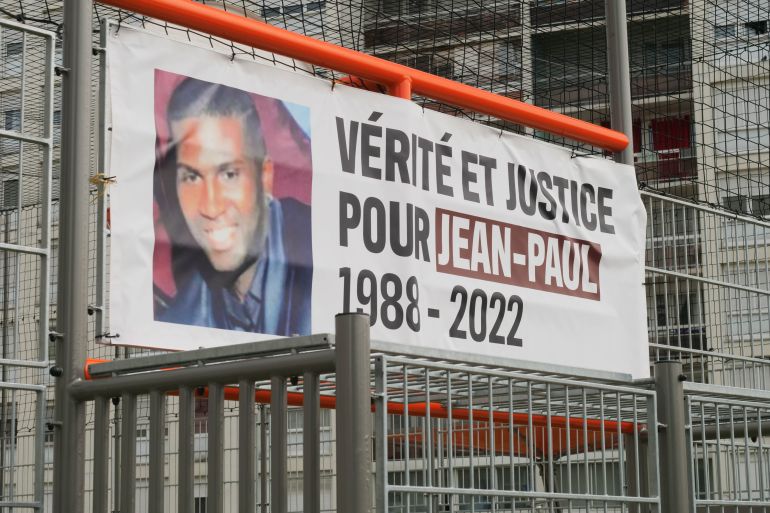
Seine-Saint-Denis, France – April 24 will conclude France’s presidential election, pitting incumbent Emmanuel Macron against the far-right Marine Le Pen, but the political finale will not be a big moment in Beaudottes, part of the deprived banlieue, or suburb, of Sevran, northeast of Paris.
Home to high-rise buildings and a large number of French citizens with ancestry in the Middle East, the Maghreb and Africa, people shrug when asked about the runoff.
Keep reading
list of 4 itemsLow turnout as France goes to the polls to elect new president
Election runoff an image of a polarised France
Who will become the next president of France?
“I’m not going to vote. I don’t trust anybody,” said Saloun Dramé, an unemployed 28-year-old looking for work as an accounting clerk. “This is the ghetto. You’ve got to live here to understand it. Politicians don’t have a clue what life is like here.”

Tensions recently spiked in this neighbourhood after police killed a Black man called Jean-Paul Benjamin.
On March 26, a policeman shot the 33-year-old father-of-two in a van that had been reported stolen. It later transpired that Benjamin had kept the van after his employer, sub-contracted to Amazon, had refused to pay him.
Residents are angry that initial media reports depicted Benjamin as a thief, potentially legitimising the killing. They are angry that subsequent revolts in Sevran, and neighbouring Aulnay-sous-Bois and Tremblay-en-France, which resulted in dozens of arrests, were depicted as riots.
And, with the officer in question currently on probation as he awaits trial for involuntary manslaughter, they are angry at what they perceive to be a broader culture of police impunity among immigrant populations in the suburbs.
“They didn’t do anything to calm the situation. They just sent the riot police,” said Yao Tsolenyanou, 40, referring to the 15 vans of the Compagnies Républicaines de Sécurité, the general reserve of the French National Police, which were counted outside the main railway station on April 9 by Al Jazeera.
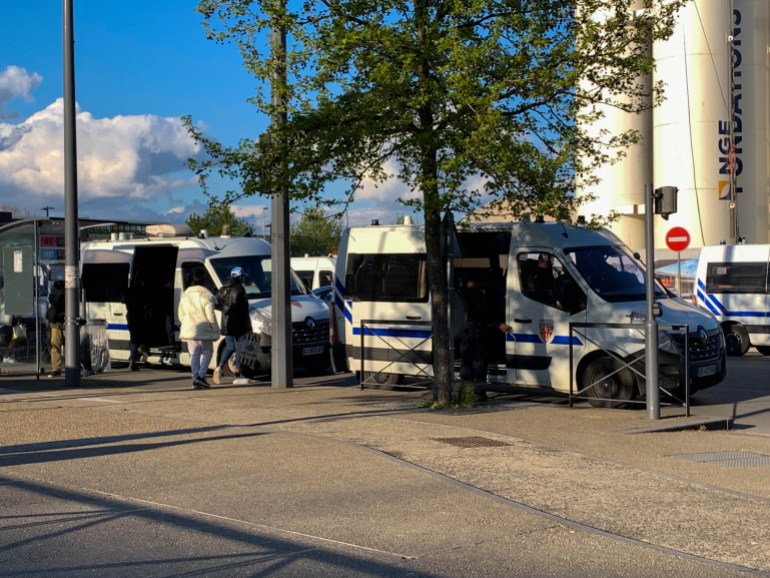
“This raises things to a new level. The more they provoke us, the more the violence will increase. Now it’s a game of who can go further, who will do the most damage.”
With emotions running so high, the elections almost seem like a side note. Tsolenyanou said that, as a Black man, he has no reason to vote.
“I was born in France. I am French. But France doesn’t consider me French,” he said. “It’s a climate of war here.”
Macron, who won the most votes in Sunday’s first round – 27.8 percent nationally, against Le Pen’s 23.1 percent – has been exhorting voters to “faire barrage”, to block Le Pen, who has softened her image, distancing her National Rally party from the jackbooted associations of her father’s Front National.
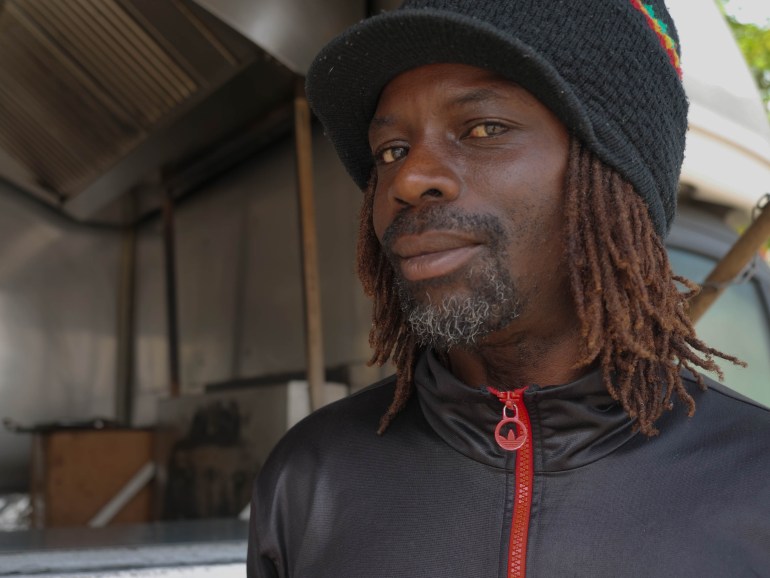
But while most of her campaign emphasised the cost-of-living crisis, she has maintained a hard line on banning the headscarf and introducing French-first measures for benefits, health, housing and jobs.
Even so, with much of the political landscape having shifted to the right, voters in places such as Beaudottes do not view Macron as a sufficiently differentiated alternative.
His term has been characterised by an increase in inequality, a violent crackdown on the gilets jaunes (yellow vests), work-for-welfare proposals, arbitrary closures of mosques and Muslim associations and a controversial interview on Islam, the veil and immigration with the far-right magazine Valeurs Actuelles.
With an abstention rate of 32 percent, the commune of Sevran is above the national average of 25 percent.
More than half of voters in Sevran backed socialist Jean-Luc Mélenchon, who came third, with 22 percent of the vote nationally, and now find themselves in the position of kingmakers.
On Allée de la Pérouse, where a banner calling for “Truth and justice for Jean-Paul” hangs at the entrance of a basketball court, one Mélenchon supporter who did not want to be named said he was tempted to vote for Le Pen as an anti-system gesture – “just to p**s everyone off”.
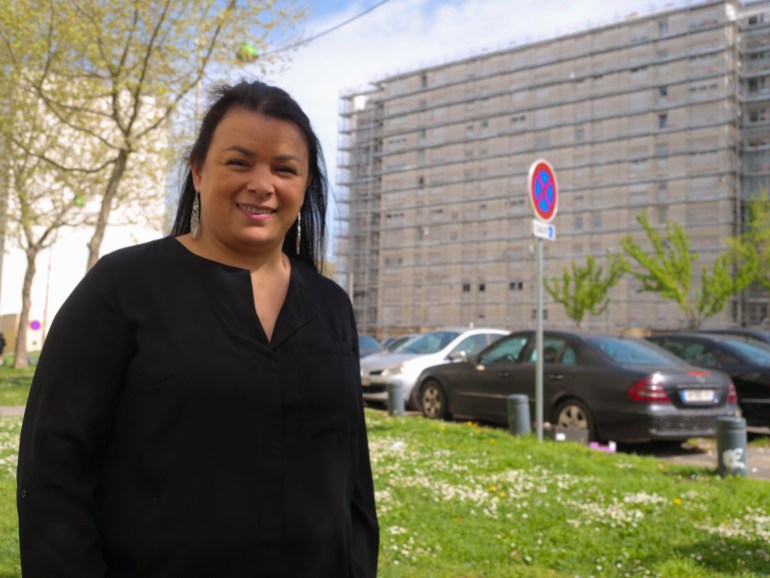
Naima El Kahlaoui, 40, who works as a mediator at Pimms, a citizens’ rights service in Beaudottes, said she will vote for Macron, but with a heavy heart.
“Le Pen scares me. She wants to remove everyone’s headscarves,” she said.
She confirmed that the atmosphere here has broken down significantly since the killing of Benjamin.
“He was just trying to get his dues. People are enraged. It could have been their father or their brother,” she said.
She recalled that, three days after the killing, the hard-right candidate Éric Zemmour, came to Sevran to announce that he would eradicate the “racaille”, or scum.
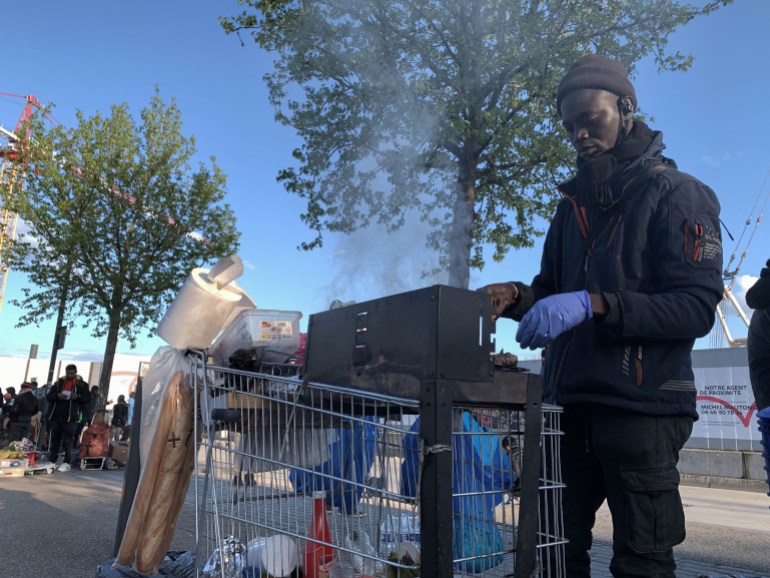
Nearby Clichy-sous-Bois has seen all this before.
Back in 2005, two teenagers were electrocuted in an electricity substation after being wrongfully pursued by police, sparking massive protests in deprived areas across the nation.
After rushing to the scene of the local uprising in 2005, Nicolas Sarkozy described those protesting as “scum”, using the word Zemmour would go on to utter in a similar context 17 years later.
Today, most residents of Clichy say they are grateful for a new tramway, opened in 2019, which now links them directly to Paris. For years, they felt cut off from the heart of France – while close in distance, there were no affordable public transport options to reach the capital city.
But despite injections of funding into housing and education, life remains harsh. The abstention rate in the first round was nearly 42 percent, way above the national average.
Maanty and Emmanuela Seck-Pavelus voted for Mélenchon in the first round.
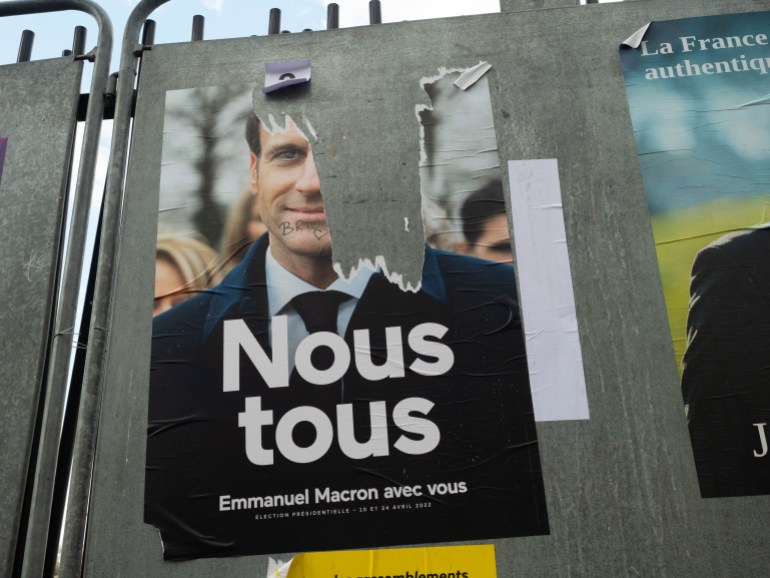
They live in a cramped two-bedroom flat on the 13th floor of a high-rise with their four children, one of whom is severely autistic.
Life is a struggle, with the constant fear that he will climb onto the balcony.
For six years, they have been pleading with their housing association, Seine-Saint-Denis Habitat, and the town hall for a change of accommodation.
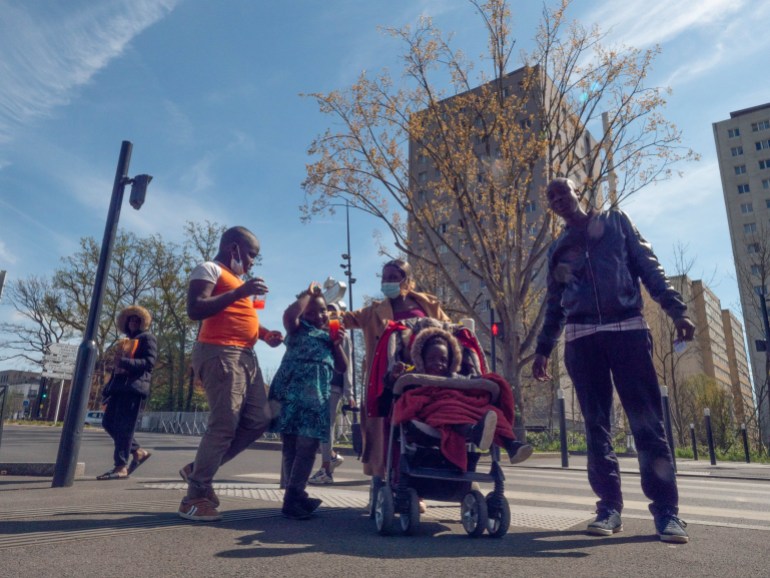
Both parents work full-time – Maanty, 39, as a public transport worker, and Emmanuela, 35, in a local nursery. Working all hours, with no support for their son, they feel they have reached breaking point.
“We want to see improvements in society, in accommodation, in salaries,” said Maanty. “Life offers us no gifts. Sometimes we turn against ourselves, tell ourselves that we’re not doing enough.”
After the results of the first round, Maanty lost hope.
Emmanuela was still deciding what to do. But Maanty was certain he will not be voting in the second round.
“Why would I vote Macron?” he says. “We’re only going to have five more years of struggle, five more years of misery.
“Politicians are good for nothing, they do nothing. For them, we’re either the people from the cité (housing projects) or the scum.”
Saïd Baaziz, 67, a retired maths teacher, also voted for Mélenchon in the first round.
“The main problem in France is living together,” he said. “I was born in Algeria when it was a French department. I love France. I love living here. But I’m not seen as French.
“It’s a problem of colour. I want to see France become a mosaic.”
